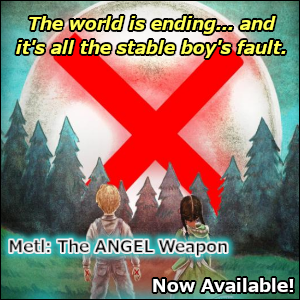When your friend asks you to critique their story, and it’s a flaming dumpster fire, what do you do??
Let’s discuss some tips then practice critiquing some brave volunteers’ stories together!
During the last stream, we went over how to give GOOD feedback to BAD stories.
Watch the full stream here if you’d like.
How to Give Positive Feedback When It’s Bad News
- As a writer it can be hard to take negative critique, but sometimes it can be even harder to give negative critique
- How do you find a balance between telling the author what they need to do to improve, but also not making them disavow writing forever?
- Let’s discuss! We’ll go over a few tips on how to give positive feedback on bad writing, then practice on some stories from brave volunteers together
#1. Protect Your Own Sanity
- Only promise to spend as much time reading a beginner writer’s story as you’d be willing to spend in a freezing shower
- You gotta wash, you gotta shampoo, but you also gotta get out fast before it makes you sick and you die
- Somewhere between 1 page and 1 chapter is good, and if they complain that’s not enough, tell them to read #5 here:
http://scottwritesstuff.com/2021/10/02/5-biggest-misconceptions-writing-publishing/
- Also! Remember, you can’t expect yourself to work miracles
- If someone wrote a story when they’ve never read more than a few books in their life, then no matter how much writing advice you give them, it won’t matter
- It’d be like telling someone advanced game design theory when they’ve barely ever played video games in the first place
- Instead of overwhelming both yourself *and* them, instead ask them what books inspired them/their favorite books are, and when they invariably say that they don’t really read, suggest that they check out books in their genre
- No amount of writing advice can ever even come close to the beneficial effect of just reading consistently
#2. Focus on the good
- If there’s something, anything, that you think the author did well, be sure to point it out
- Maybe it’s a single nice description, or a juicy verb, or a character trait, literally anything
- Even if it’s not great, but merely okay, compliment it
- Getting nothing but negative feedback will make someone throw a story out, but even having one or two positive comments will give them hope
#3. When you do point out that bad stuff, don’t point out every single thing that’s bad
- If every sentence is a mess, don’t worry about pointing it out, just comment on it once, maybe a reminder later, and that’s it
- For example, if the author’s writing is too fast and they’re not describing locations/characters, comment the first time it happens, put a reminder the second time, and then that’s enough
- At the end of the day, it’s up to the author to learn that things you’ve pointed out can apply to other parts of their story, not just the ones you’ve physically marked, and as long as they keep writing, they will realize that eventually
- However, getting a page full of red ink/highlighted comments can potentially terrify a beginner writer from ever writing again
#4. Suggest concrete alternatives
- Whenever you suggest something should be changed (ie: show instead of tell, be more specific, etc), be sure to give an example
- If the original story has something like “And then they fought, but just as she was about to lose, she ran away,” just commenting “show don’t tell” might not be enough for the author since they might not know what that means/how to fix it
- Offering a link to an article, or a concrete example like this can help: “She swung her fist at him, but before it was even halfway to his face, his leg swung up and slammed into her side…”
- You don’t have to give an example/source every time, but at least once per type of comment helps a lot and also makes you seem like a better authority, which leads into the last point…
#5. Frame your feedback as “suggestions” not “commands”
- Remember that getting feedback is a sensitive time for people
- In their head, their writing is amazing, and any negative feedback you give them is a personal attack, so the softer you can make it, the higher the chance they’ll listen and not just get defensive/not change it out of spite
- For example, if you just circle a section and say “too fast,” a beginner writer is likely to ignore it because to them, the scene is fine, they can picture it in their head no problem
- But, if you say “this section is a little fast, you might want to consider slowing it down like this…” and then provide an example/source, they’re much likelier to actually take the advice
In Summary!
- Always remember that someone else’s writing journey is not your responsibility
- All you can do is give your honest thoughts and frame them as politely and accurately as you can, the rest is up to the author
- One of three things will happen:
- They take your advice and improve
- They don’t take your advice and get lucky/famous
- They don’t take your advice and stop writing
- All three are perfectly fine outcomes, and if 3 happens, as long as you followed these tips, it’s definitely not your fault
- The one thing you don’t want to do is stamp out someone’s budding writing sprout before it gets a chance to grow, and these tips ensure that you won’t do that
If you want to join us and help write a story by trolling in chat, or share your own writing for feedback, then we’d love to have you join us on Twitch.
And you missed the stream, you can still watch them on the YouTube channel or watch the full stream reruns.
Hope to see you next time, friend!
 Featured image: Pakutaso
Featured image: Pakutaso
